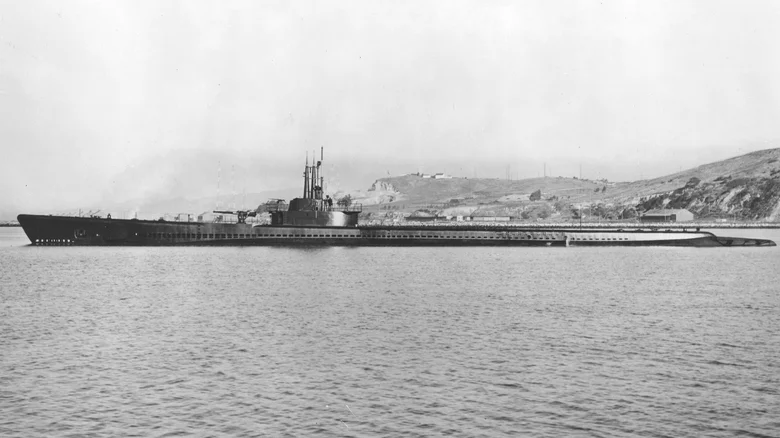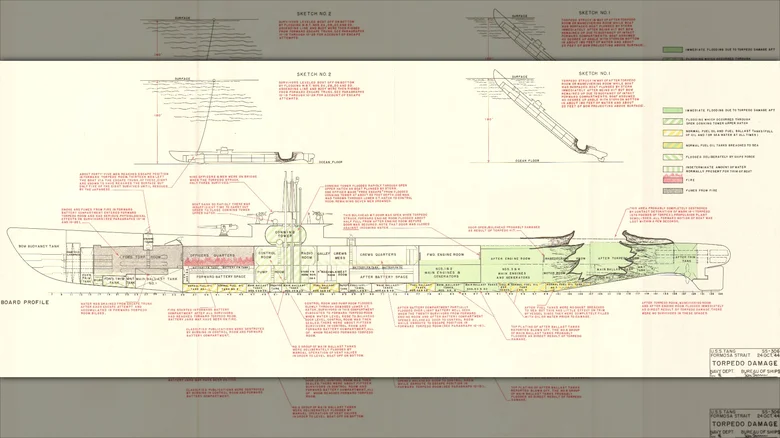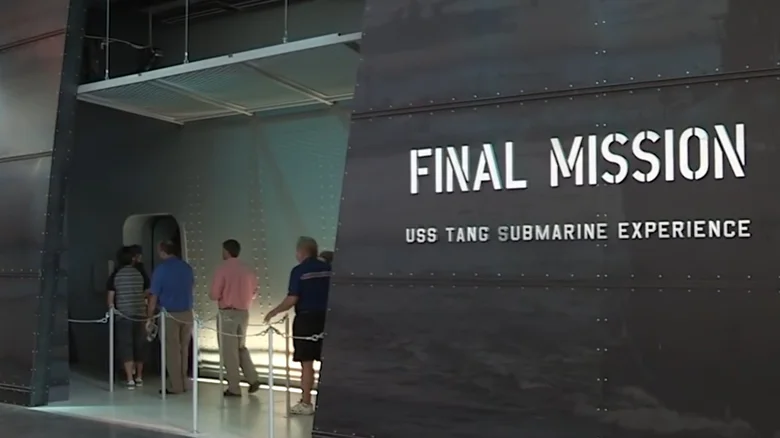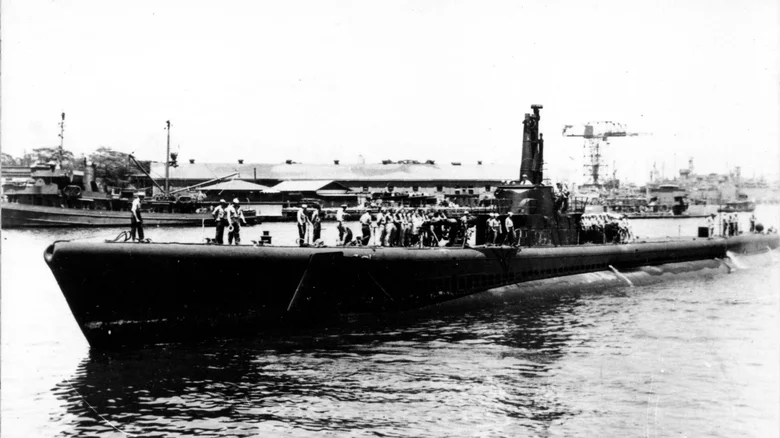Torpedoes are not merely underwater missiles designed to fight off enemy ships. For example, the Mark 18 torpedoes used back in World War II were highly complex and advanced weapon systems capable of short-range engagement via an internal propulsion system and external propeller. Steering was controlled via a gyroscope, and it was the first torpedo powered by an electric storage battery. It was a sophisticated piece of ordnance that helped the U.S. win the war in the Pacific.
Unfortunately, the Mark 18 had numerous problems that took most of the war to sort out. One such problem was something called "circular runs," which involved a torpedo returning to the ship that fired it. There were several instances of circular runs involving U.S. submarines during WWII, but one case was unluckier than most because it fired a torpedo that circled back around like a boomerang and wound up sinking the ship. Here is the story of the early submarine, the USS Tang (SS-306), which had a fearsome reputation before meeting its fate on October 25, 1944.
This submarine was a force to be reckoned with in the ocean

The USS Tang was a Balao-class submarine designed to sink ships, and in her short career, that's precisely what she did. The Tang has an impressive war record, having sunk 33 enemy ships from the day it was commissioned on October 15, 1943, to the day it sank just over two years later. This ship alone accounted for the sinking of 116,454 tons of enemy shipping, which is impressive, seeing as she only sailed for two years.
The Tang's success earned Commander Richard O'Kane the Medal of Honor. O'Kane and the Tang were recognized for sinking a Japanese ship every 11 days she operated throughout five patrol missions. On top of that, she rescued numerous airmen from the ocean, so she was a busy submarine. Although they would be her last, the Tang's final two days of operation were part of what made her a legendary ship.
The Tang went up against several vessels on October 24, 1944. She ran into a Japanese convoy and engaged by firing off a slew of torpedoes. Two tankers tried to ram her, but the Tang managed to avoid them, causing them to slam into one another. She also engaged a destroyer, a transport, a freighter, and several escort ships. While she survived that engagement, she wouldn't survive the following one.
The USS Tang was sunk by its own torpedo

The USS Tang's final day above the water came on October 25, 1944, around Turnabout Island in the Taiwan Strait. Upon her approach, the Tang's radar identified several ships that made up an enemy convoy, so she lined herself up to better engage her targets, beginning with a large transport, a smaller transport, and a massive tanker. She fired at them all and drew a great deal of enemy fire.
The Tang sank the tanker and small transport but had to contend with a destroyer that headed straight for her. That destroyer exploded, possibly from one of the Tang's torpedoes, and with her last two shots, the Tang fired at the transport. One torpedo hit the tanker, but the other went wild and began a circular run back toward the Tang.
The Commanding officer saw it coming, and Commander O'Kane tried to steer his vessel away from the incoming torpedo, but he had little time. It only took 20 seconds for the torpedo to return to the Tang, slamming into its torpedo room and sinking the ship. Most hands were lost, though Commander O'Kane and nine crewmen survived. They were picked up by a Japanese destroyer and spent the rest of the war in the Ōfuna prisoner-of-war camp. The truth of the Tang's hand in its sinking wasn't revealed until the survivors returned and the war ended.
The Tang left a lasting legacy

The USS Tang was one of the most legendary submarines of World War II and remains the most successful American submarine to ever operate during wartime. While the ship was lost, you can still experience being on it during its final mission. The National WWII Museum in New Orleans has an exhibit called Final Mission: USS Tang Submarine Experience, which recreates the Tang's fifth and final war patrol on the day it sank. Guests experience the final battle that brought the Tang down while learning about its story and impact.
Interestingly, the Tang sank in a relatively shallow area of the ocean, coming to rest off the coast of China in water that was only around 180 feet deep. However, her wreck remains undiscovered.
Nevertheless, the USS Tang received two Presidential Unit Citations and four battle stars for her service during World War II. She's been featured in various pop culture outlets, including two episodes of "The Silent Service," which details the Tang's second and final patrol. Plus, an image of the Tang's torpedo damage report appeared in "Godzilla Minus One," so she has a lasting legacy despite sinking over 80 years ago.
- Adenman and Karlston
-

 2
2



Recommended Comments
There are no comments to display.
Join the conversation
You can post now and register later. If you have an account, sign in now to post with your account.
Note: Your post will require moderator approval before it will be visible.